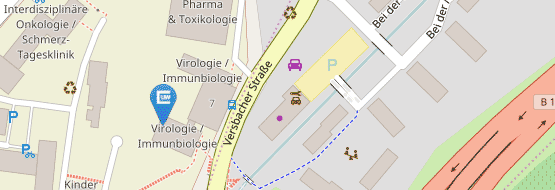Prof. Dr. Asisa Volz
New vaccines against emerging zoonotic infections: From animal models to clinical evaluation
| Datum: | 14.09.2022, 17:00 - 18:00 Uhr |
HZI Forum, X 0.13
and
via Zoom to HZI sites / Link will follow
Safety tested Modified Vaccinia virus Ankara (MVA) is licensed as third
generation vaccine against smallpox
and serves as a potent vector system for development of new candidate vaccines against infectious
diseases and cancer. Historically, MVA was developed by serial tissue culture passage in primary chicken
cells of vaccinia virus strain Ankara, and clinically used to avoid the undesirable side effects of conventional
smallpox vaccination. Adapted to growth in avian cells MVA lost the ability to replicate in mammalian hosts
and lacks many of the genes orthopoxviruses use to conquer their host (cell) environment. At present, MVA
serves as an advanced vaccine technology platform for developing new vector vaccines against infectious
disease and cancer including emerging viruses. Previous work addressed the development of an MVA
candidate vaccine against MERS with immunizations in animal models demonstrating the safety,
immunogenicity and protective efficacy of MVA induced MERS CoV S antigen specific immunity. Clinical
safety and immunogenicity of the MVA MERS S candidate vaccine was established in a first in man phase I
clinical study. Currently, MVA MERS S is being tested in an European level collaboration for phase 1b/2a
clinical evaluation. Recent work addressed the preclinical development of MVA vector vaccines against
COVID 19, including the candidate vaccine MVA SARS 2 S (MVA S). Immunizations with MVA S in animal
models demonstrated the safety, immunogenicity and protective efficacy of this vector vaccine delivering the
native full length SARS CoV 2 S antigen. Further, MVA S entered phase 1a clinical evaluation to assess the
clinical safety and tolerability of two administrations and two ascending dose levels in healthy adults.


